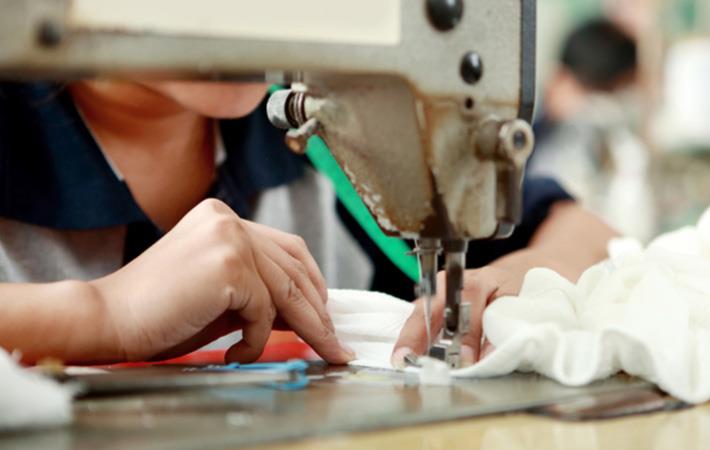Interviews
Your go-to source for news, anytime, anywhere! Insightful industry information from the textile, apparel & fashion world with our news app
Download Now
Your go-to source for news, anytime, anywhere! Insightful industry information from the textile, apparel & fashion world with our news app
Download Now
Your go-to source for news, anytime, anywhere! Insightful industry information from the textile, apparel & fashion world with our news app
Download Now
Your go-to source for news, anytime, anywhere! Insightful industry information from the textile, apparel & fashion world with our news app
Download Now
News Flash
Indian SMEs in big digital shift in pandemic times: CRISIL
29 Dec '20
3 min read

Pic: Shutterstock
Indian micro and small enterprises (MSEs) have witnessed a significant rise in adoption of digital sales channels since the COVID-19 pandemic struck, according to a November CRISIL survey, in which about three-fifths of the respondents adopting digital selling said it helped them weather the pandemic-induced stress, while the rest said it boosted sales.
These respondents were also more positive about their near-term business situation compared with those that didn’t take the digital route.
The survey was aimed at gauging changes in the level of usage of digital channels—including of online aggregators, social media platforms and owned websites—by such entities after the pandemic.
“About 29 per cent of the MSEs surveyed were using digital sales channels such as online aggregators/ market places, social media, and mobile marketing before the pandemic struck. That number has shot up to 53 per cent among small enterprises and 47 per cent among micro enterprises as of November. Despite their limitations, micro enterprises are not very far from small enterprises in digital adoption,” said CRISIL director Bhushan Parekh in a press release.
“Also, many more are now saying they will take the digital route soon. This underscores the fact that increasing digitalisation enlarges the footprint of MSEs, helping them tap newer markets and improving their access to credit,” he added.
Among manufacturing sectors, gems and jewellery and textiles showed the most improvement.
Textiles MSEs showed a massive jump of 38 percentage points in adoption of digital channels compared with 20 per cent before the pandemic. The increase was more for small enterprises (44 per cent, up from 13 per cent) than micro ones (14 per cent, up from 7 per cent).
Adoption in pharmaceuticals (excluding medicine retailers) was unchanged at 29% because of relatively higher offline demand. Among manufacturers of unbranded food products – including agro-produce processing units such as rice, wheat, and flour millers, and manufacturers of unbranded packaged foods – digital revenues slipped a notch given the localised nature of demand.
In services, realtors and human resources firms showed maximum adoption of digital sales channels.
Says Manasi Kulkarni, Associate Director, CRISIL, “Realtors were impacted by the pandemic largely due to the unavailability of migrant labour and travel restrictions. Eventually, these players adapted to the new normal by adopting digital sales channels and partnered with online aggregators to help them with lead generation.”
As for human resource enterprises (largely recruitment firms), the social-distancing norms have compelled them to adopt digital channels to connect with clients and potential candidates.
The survey covered 566 micro and small enterprises with annual turnover below Rs 25 crore. A good 45% of these were micro enterprises, or those with revenue less than Rs 5 crore. The remaining were small enterprises with revenue in the ₹5-25 crore range.
Of the 566 entities, 41 per cent were manufacturing units across nine industries and the remaining were service enterprises across 11 industries.
These respondents were also more positive about their near-term business situation compared with those that didn’t take the digital route.
The survey was aimed at gauging changes in the level of usage of digital channels—including of online aggregators, social media platforms and owned websites—by such entities after the pandemic.
“About 29 per cent of the MSEs surveyed were using digital sales channels such as online aggregators/ market places, social media, and mobile marketing before the pandemic struck. That number has shot up to 53 per cent among small enterprises and 47 per cent among micro enterprises as of November. Despite their limitations, micro enterprises are not very far from small enterprises in digital adoption,” said CRISIL director Bhushan Parekh in a press release.
“Also, many more are now saying they will take the digital route soon. This underscores the fact that increasing digitalisation enlarges the footprint of MSEs, helping them tap newer markets and improving their access to credit,” he added.
Among manufacturing sectors, gems and jewellery and textiles showed the most improvement.
Textiles MSEs showed a massive jump of 38 percentage points in adoption of digital channels compared with 20 per cent before the pandemic. The increase was more for small enterprises (44 per cent, up from 13 per cent) than micro ones (14 per cent, up from 7 per cent).
Adoption in pharmaceuticals (excluding medicine retailers) was unchanged at 29% because of relatively higher offline demand. Among manufacturers of unbranded food products – including agro-produce processing units such as rice, wheat, and flour millers, and manufacturers of unbranded packaged foods – digital revenues slipped a notch given the localised nature of demand.
In services, realtors and human resources firms showed maximum adoption of digital sales channels.
Says Manasi Kulkarni, Associate Director, CRISIL, “Realtors were impacted by the pandemic largely due to the unavailability of migrant labour and travel restrictions. Eventually, these players adapted to the new normal by adopting digital sales channels and partnered with online aggregators to help them with lead generation.”
As for human resource enterprises (largely recruitment firms), the social-distancing norms have compelled them to adopt digital channels to connect with clients and potential candidates.
The survey covered 566 micro and small enterprises with annual turnover below Rs 25 crore. A good 45% of these were micro enterprises, or those with revenue less than Rs 5 crore. The remaining were small enterprises with revenue in the ₹5-25 crore range.
Of the 566 entities, 41 per cent were manufacturing units across nine industries and the remaining were service enterprises across 11 industries.
Fibre2Fashion News Desk (DS)
Popular News
Leave your Comments
Editor’s Pick
Andreas Rass
ZIMMER AUSTRIA | Digital Printing Systems
J Rajaraman
Canadian Solar Energy Private Limited
Salvatore Piccione
Label - Salvatore Piccione
































-Ltd..jpg?tr=w-120,h-60,c-at_max,cm-pad_resize,bg-ffffff)





.jpg?tr=w-120,h-60,c-at_max,cm-pad_resize,bg-ffffff)
.jpg?tr=w-120,h-60,c-at_max,cm-pad_resize,bg-ffffff)






